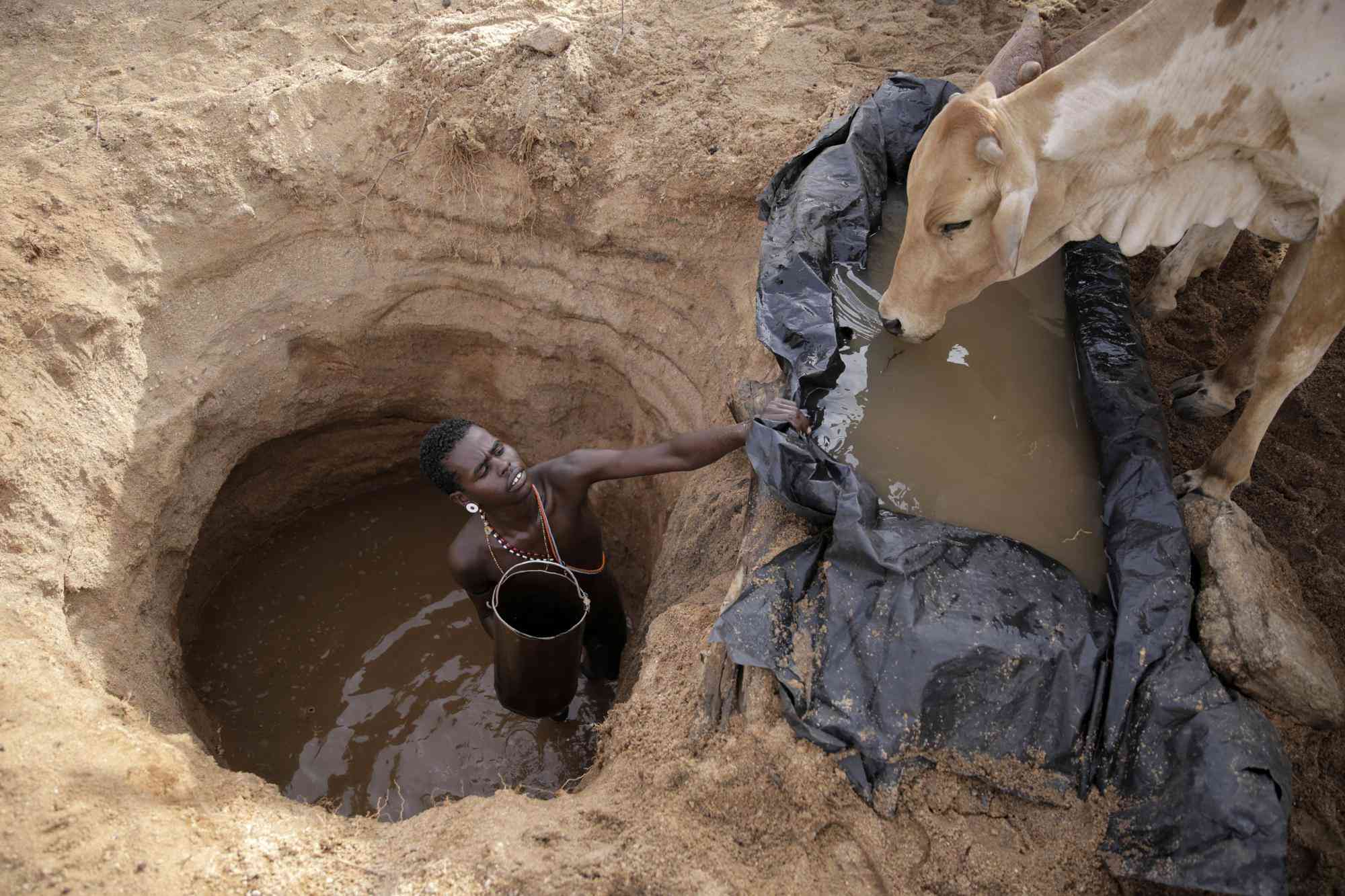×
The Standard e-Paper
Fearless, Trusted News

A Samburu man gives cows water in Kom village, Samburu County, Kenya. Generations of East Africans have tapped groundwater in the desert to survive in parched lands as droughts are worsening due to climate change. [AP]
Letoyie Leroshi walked for five days hunting water. After three years of drought in Samburu County, Kenya, the riverbeds were bone-dry.